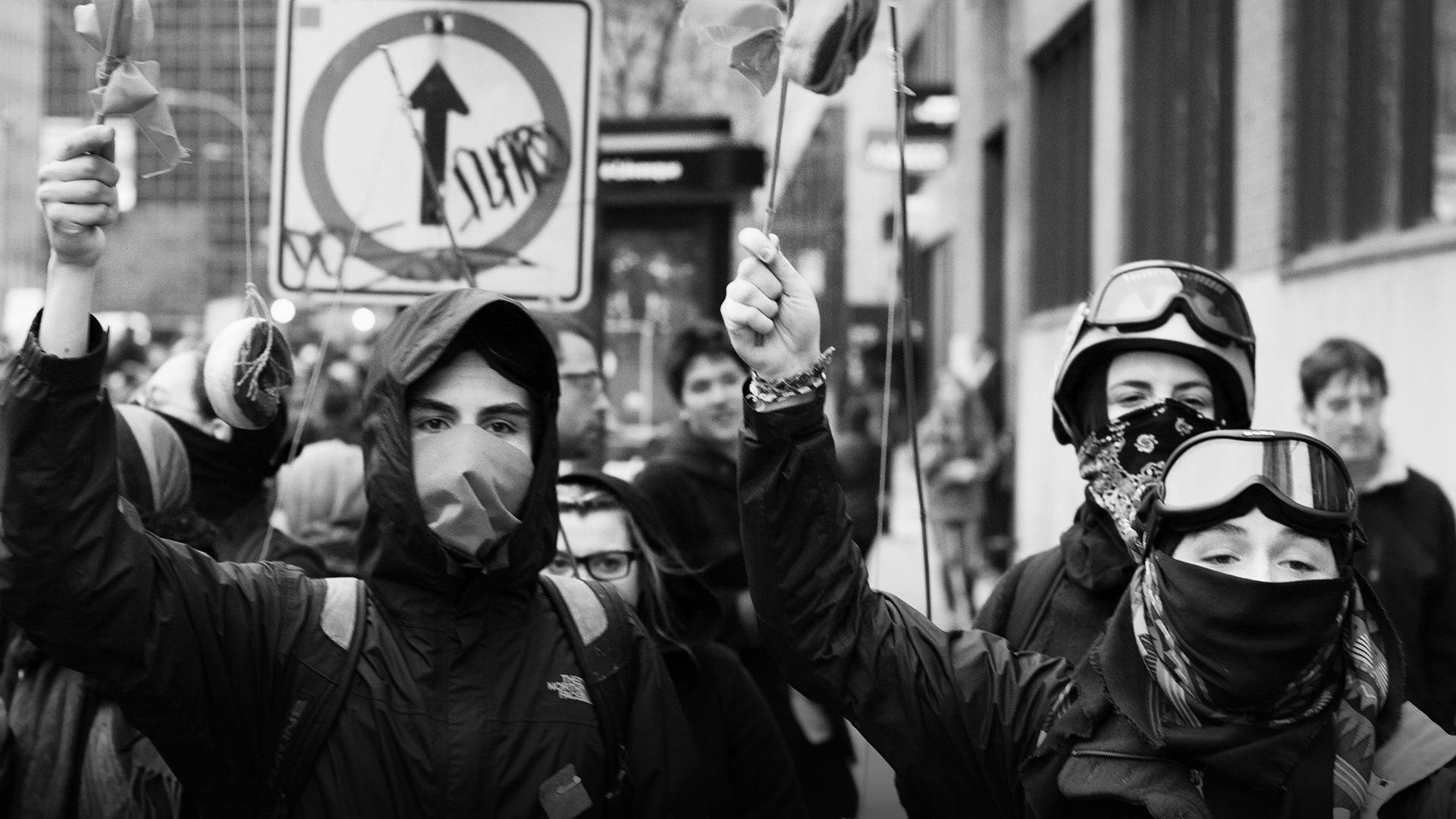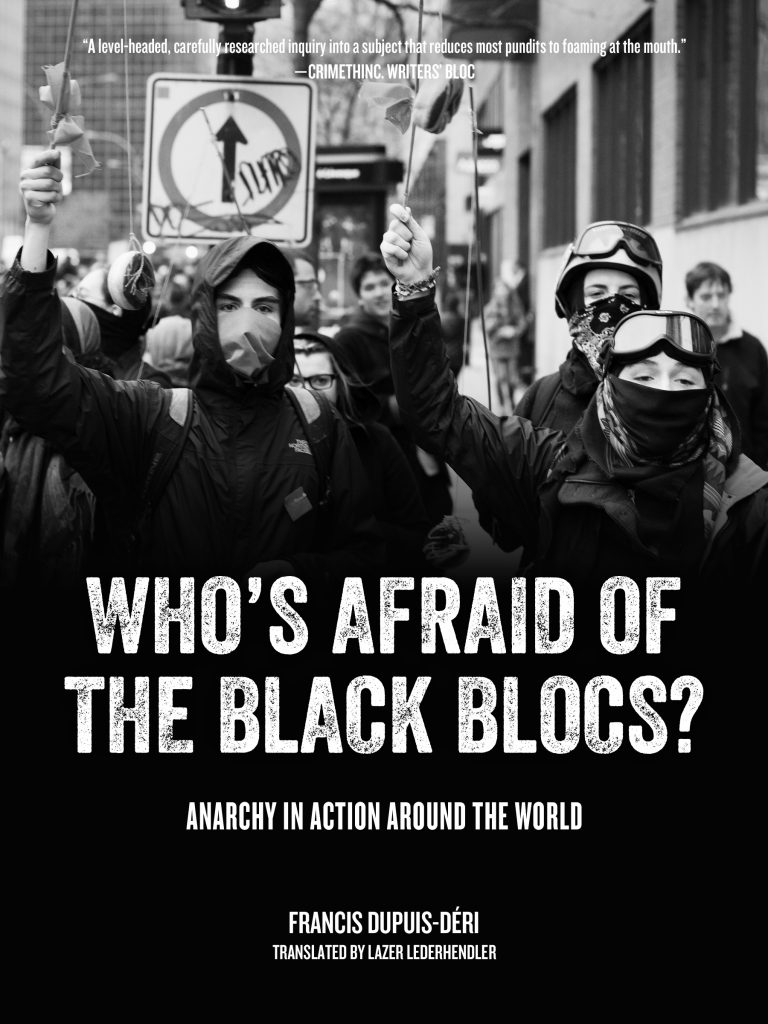By Luther Blissett
Medium
When you see “Black Bloc,” it is usually incredibly negative and disparaging. Whether it’s the peace police upset that a group is using the cover of their demonstration to do material damage to corporate enemies (with some innocent collateral usually in the way) or the police using the Black Bloc as an excuse to justify exert force in response to a demonstration, nobody really seems to like the Black Bloc.
But does the Black Bloc actually get anything done? What useful or important work do they engage in?
This is where Who’s Afraid of the Black Blocs? has value: it features interviews with multiple participants from multiple demonstrations and actions globally. As the author points out, a Black Bloc is never the same Bloc twice. Different people attend, participate, and leave, at every site–yet the Bloc is referred to in many discourses as if it is a singular or fixed identity. Perhaps it is like Borg and some join while others leave.
The author helps make clear that many BB participants are not dolts bent on destruction or thieving a pair of Jordans; instead, their actions are strongly motivated by politics.
Equally important, the author addresses Black Blocs’ gendered and racial nature of Black Blocs, from how labor is divided to how members from more oppressed populations can actively engage without risking additional problems. For example, if people of color or undocumented residents join a BB and then are arrested, what level of risk–financial and physical–do they have compared to a college age white male? The author offers no solutions, but at least acknowledges and addresses these concerns.
The book is an enthusiastic engagement with and representation of perhaps one of the most reviled political protest tactics. It is easy to read, well-documented, and has plenty of references to follow up. One of the most important themes that comes to light through the text is the transformative nature of participating in a Black Bloc and how that can impact and empower individual activists as well as their political activities.
At least within the framing of the text, many Black Bloc participants–or at least those willing to be interviewed–seem interested and open to having multiple or diverse types of protest from non-violent to property destructive to potentially violent protests. And those choices should be left up to individuals. In sharp contrast, the police, the media, and many other liberal, but not radical, protestors are disinclined to allow or permit individuals to protest, and accept consequences, as they see fit.
Whether or not you agree with Black Blocs, property destruction, or a diverse array of protest methodologies, this book is excellent for several reasons.
First, rather than relying on hype or interpretation of events by outsiders, or by media seeking flashy conflicts or hits to websites, the author actually interviews multiple participants and he connects and engages with existing research, scholarship, and engagement with the Black Bloc. While it is clear that the author sympathizes with and appears to support, or at least understand, the value of Black Blocs as political tools and methods, he does not offer blind support for them. But he also does not question their importance in some political processes. Finally, and perhaps most important–at least in terms of traditional representations of the Black Blocs in mass media — the author calls into question and compares the relative damage of a Black Bloc trashing a downtown or financial sector, most of which is covered by insurance, when compared to the environmental devastation or economic thrashing that some of these institutions inflict. For example, is smashing a few windows really comparable or more despicable than supporting the DAPL with its ongoing treaty violations and promised future environmental destruction and reinforcement of racism that directs what routes the pipeline is built on?
If you want to join a Black Bloc, reading this book would certainly expedite the enculturation process. But if you’re going to critique Blocs, at least have an understanding of them. You don’t have to support or endorse Black Blocs in order to understand them.







